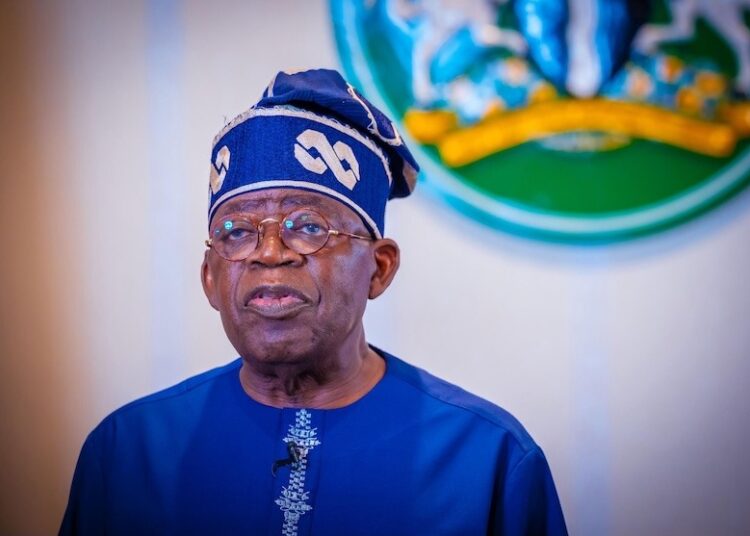National Economic Council (NEC) has endorsed President Bola Ahmed Tinubu’s proposal to overhaul training institutions for security agencies nationwide.
The President’s proposal followed a presentation made to the Council by the minister of Budget and Economic Planning, Senator Abubakar Atiku Bagudu, on the realisation of President Tinubu’s vision for a trillion-dollar economy, which also highlighted the necessity of investing more in security by the three tiers of government.
At its 152nd meeting at the Presidential Villa, Abuja, NEC constituted a committee chaired by Enugu State Governor Peter Mbah to oversee overhauling national training institutions for security agencies.
According to a statement by the vice president’s spokesman, Stanley Nkwocha, the committee has one month to produce a blueprint for renovating training institutions for the Nigeria Police Force and sister agencies nationwide.
Addressing members of the Council, President Tinubu highlighted the need for the government to fix training institutions and facilities for security agencies across the country, assuring that his administration would make concerted efforts to reverse the dilapidation in police training facilities nationwide.
“We have to make the conditions of the training facilities more conducive for both the trainers and trainees,” he said.
Other members of the NEC committee are Governors Uba Sani of Kaduna, Dapo Abiodun of Ogun, Kefas Agbu of Taraba, Umoh Eno of Akwa Ibom, Dauda Lawal of Zamfara, and Abdullahi Sule of Nasarawa, with former Inspector General of Police (IGP), Baba Usman, as secretary.
President Tinubu also urged state governors to pay attention to issues that affect the well-being of the people, particularly at the grassroots.
Earlier, NEC Chairman Vice President Kashim called on state governments to translate the optimism of the streets into real prosperity in homes and communities.
In his opening address, Vice President Shettima reminded state governors that the measure of governance lies in the tangible improvement of citizens’ lives rather than rhetoric.
“The measure of government is not in speeches delivered; it is in the lives improved,” the Vice President said.
Highlighting one of the day’s major presentations, including the Anticipatory Action Framework for Riverine Flooding by the Office of the National Security Adviser (ONSA), VP Shettima reiterated the administration’s shift from reactive crisis management to proactive planning.
“It is no longer in doubt that rivers that once sustained our farmlands and livelihoods have also been the source of recurring tragedy for many of our citizens.
“Entire communities have watched their dreams drown in waters that could have been tamed through foresight and planning. True leadership anticipates danger and builds systems to prevent loss before it happens,” he said.
He commended the National Security Adviser, Malam Nuhu Ribadu, for leading the charge toward disaster preparedness across the federation. He noted that the framework would strengthen early warning systems, coordination mechanisms, and subnational response capacities.
The Minister of Budget and Economic Planning, Sen. Abubakar Atiku Bagudu, presented an NEC memorandum outlining Nigeria’s trajectory toward a $1 trillion economy by 2033. The memorandum described the target as a test of coordination and clarity.
The Vice President said, “This ambition requires coordination across the federation. Our duty as a Council is to interrogate the pathways, assign responsibilities, and ensure that our targets are realistic, time-bound, and transparent to the citizens who expect results.”
He emphasised that the roadmap aligns with President Bola Ahmed Tinubu’s Renewed Hope Agenda, which prioritises macroeconomic stability, job creation, food security, and subnational competitiveness as anchors of national prosperity.
Senator Shettima also commended the Katsina Sustainable Platform for Agriculture (KASPA), a state-driven digital agriculture model designed to modernise service delivery and improve farmers’ access to data, markets, and climate information.
“Earlier this week, at the invitation of His Excellency, Governor Dikko Umaru Radda, I was in Katsina State. One of the progressive projects we launched is the Katsina Sustainable Platform for Agriculture, known as KASPA. It is a scalable framework for digital governance, farmer inclusion, and climate-smart productivity ready for sub-national adoption,” the Vice President said.
He noted that the platform reflects the Council’s broader commitment to technology-enabled governance and inclusive agricultural growth, which extends to the thirty-six states and the FCT.
“The story of Nigeria’s recovery will not be written by chance but by choice—by the deliberate actions we take to protect our economy, safeguard our environment, and uphold the welfare of our citizens,” he said.
VP Shettima commended governors, ministers, and members of the Council for sustaining the NEC as a platform of trust, cooperation, and policy innovation.





